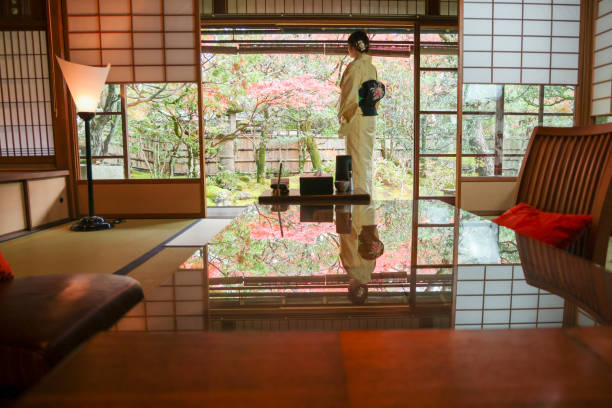Rediscovering the Charm of Traditional Inns: A Journey into Japan’s Ryokans
Immersing oneself in local culture is a key part of any travel experience. In Japan, one of the best ways to do this is by staying at a traditional inn, known as a ryokan. These establishments offer a unique glimpse into Japanese history, culture, and hospitality, making them a popular choice for travelers seeking a more authentic experience.

A Historical Overview of Ryokans
The ryokan tradition dates back more than a thousand years, originating during the Heian period (794-1185). These inns were established along travel routes to provide lodgings for weary travelers, often pilgrims or merchants. They’ve evolved over the centuries, but their core tenets of hospitality, simplicity, and harmony with nature remain unchanged. Today, they serve as a comforting reminder of Japan’s rich cultural heritage and tradition.
The Ryokan Experience: A Blend of Tradition and Comfort
Staying at a ryokan is much more than just a place to sleep. It’s an immersive experience, marked by traditional architecture, serene gardens, tatami-matted rooms, and communal hot springs (onsen). The highlight for many, however, is the exquisite kaiseki meals, multi-course feasts that showcase the best of seasonal and local cuisine.
The Modern Appeal of Ryokans
In recent years, ryokans have gained popularity among both domestic and international travelers. The trend seems to be driven by a desire for unique, culturally immersive experiences. Amidst the rapid urbanization and modernization of Japan, ryokans offer a tranquil retreat and a chance to experience a slower, more traditional way of life.
Advantages and Challenges of Ryokan Stays
Staying at a ryokan offers numerous benefits. It provides a peaceful respite from the bustling city life, a chance to connect with Japanese culture on a deeper level, and an opportunity to enjoy traditional Japanese cuisine at its finest. However, it’s important to note that ryokan stays also come with their own set of challenges. For instance, the traditional Japanese customs and etiquette observed in these inns can be daunting for first-time visitors.
Fascinating Ryokan Facts
- Japan has over 50,000 ryokans, ranging from small family-run inns to luxurious establishments.
- The oldest ryokan, Nishiyama Onsen Keiunkan, has been operating for over 1,300 years and is recognized by the Guinness World Records.
- Traditional ryokans often feature communal baths, fed by natural hot springs. These are known as onsen.
- The kaiseki meal served at ryokans is an art form in itself. Each dish is meticulously prepared and presented, reflecting the seasons and local ingredients.
Concluding Thoughts
Ryokans offer a unique and compelling way to immerse oneself in Japanese culture. While they may present certain challenges to the uninitiated, the rewards of this culturally rich experience far outweigh any initial discomfort. As we continually seek out authentic and meaningful travel experiences, the charm of ryokans is likely to endure, reminding us of the beauty found in simplicity and tradition.






